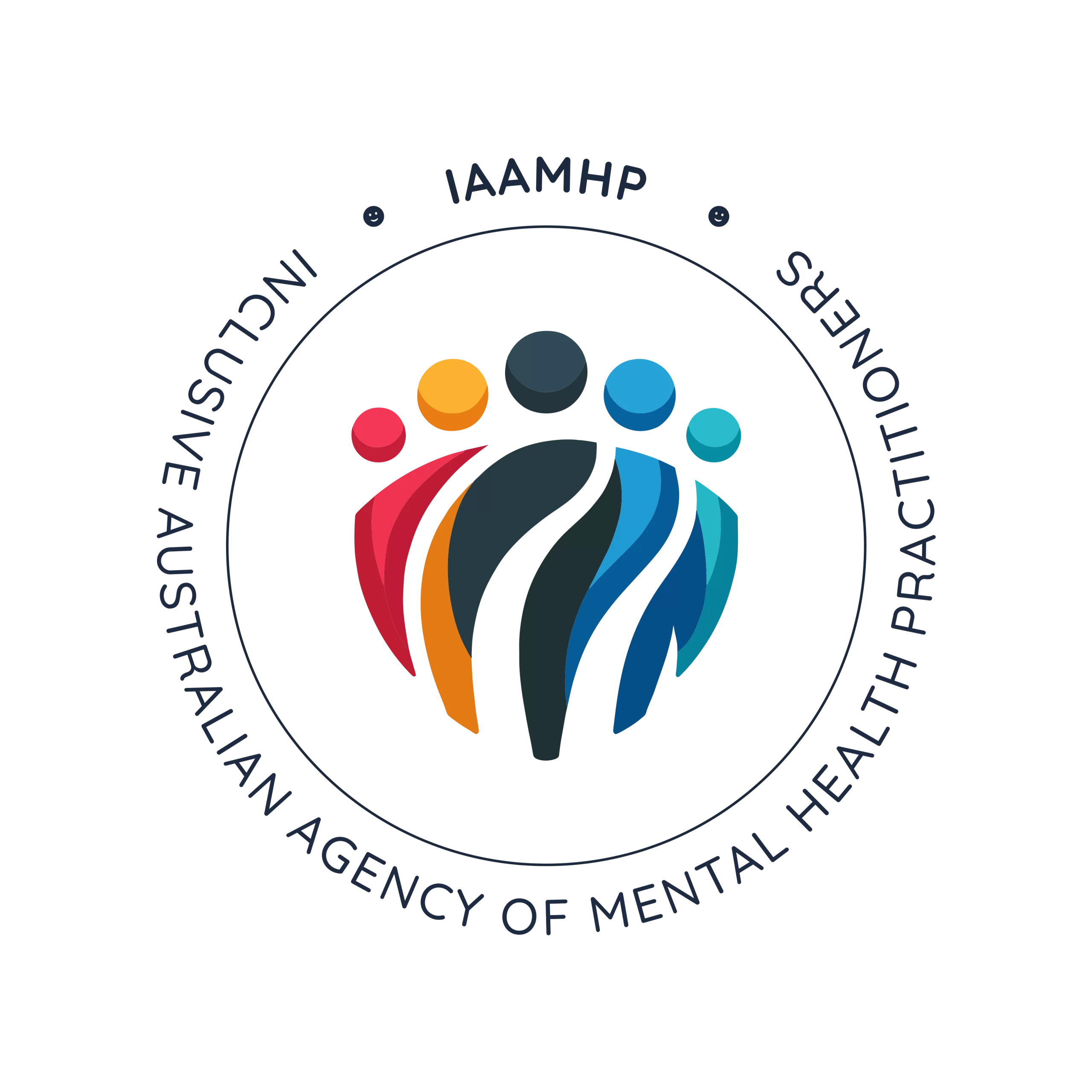You can be a Licensed Accredited Mental Health Worker with IAAMHP!
Free Membership for students and volunteers
Grow, Connect, Influence
IAAMHP Advocacy for Mental Health Professionals
Our Purpose: Supporting All Mental Health Practitioners
At the Inclusive Australian Agency of Mental Health Practitioners (IAAMHP), our mission is to build a collaborative and inclusive professional community that recognises and supports both regulated and non-regulated mental health professionals. We are committed to upholding high standards in ethics, qualifications, and practice across the mental health sector to improve outcomes for clients and promote professional wellbeing.
We believe that every qualified mental health practitioner—regardless of their regulatory status—should have the opportunity to contribute meaningfully to Australia’s mental health system. Whether a practitioner is registered under statutory bodies such as the Australian Health Practitioner Regulation Agency (Ahpra), or operating within a self-regulated profession, IAAMHP supports pathways to recognition based on competency, experience, and accredited training.
IAAMHP’s Commitment to Advocacy
- ✔ Establish a national peak body that represents qualified mental health practitioners, including those who are not currently registered under existing statutory or non-statutory peak bodies.
- ✔ Develop and promote a formal accreditation model for mental health workers that upholds high standards of professional competence, ethical conduct, and ongoing development. Our accreditation model will reflect sector expectations and align with public interest in safe, high-quality care.
- ✔ Advocate for equitable access to funding systems—including Medicare, the National Disability Insurance Scheme (NDIS), and private health insurers—for practitioners who meet established benchmarks in training, supervision, and practice standards, regardless of their current registration status.
- ✔ Promote sector-wide transparency, accountability, and public trust by creating a public-facing register of IAAMHP-accredited professionals, verifying qualifications, competencies, and scopes of practice.
- ✔ Support recognition of accredited and qualified mental health professionals through formal regulatory pathways. IAAMHP advocates for the long-term development of a regulated classification for appropriately trained mental health practitioners, similar to existing models for general practitioners, psychiatrists, and psychologists under the National Law administered by Ahpra. We believe that clearly defined and accessible regulatory pathways will help improve professional equity, client safety, and sector integrity.
Recognising All Competent Professionals: Equity in Access to Medicare and NDIS
Currently, a range of health professionals—including those not registered under Ahpra—may access Medicare provider numbers or participate in the NDIS, provided they are represented by recognised professional bodies.
These follwoing non-ahpra regulated allied health professions have successfully established structured accreditation pathways through their respective peak bodies, enabling them to be recognised under federal programs like Medicare and NDIS.
Allied health professionals - non Ahpra registered:
- ✔ Social Workers (represented by AASW – Australian Association of Social Workers)
- ✔ Speech Pathologists (represented by Speech Pathology Australia)
- ✔ Mental Health Nurses (represented by ACMHN)
- ✔ Aboriginal Health Workers
- ✔ Audiologists
- ✔ Exercise Physiologists
- ✔ Accredited practicing dietitian
- ✔ Diabetes educator
- ✔ Orthoptist
For instance, when applying for medicare provider number, non-Ahpra registered applicants must provide evidence of their registration from their relevant professional association (for example, registration record, certification, evidence of membership) showing recognition in their health profession with your initial application. Aboriginal health worker applicants must provide a copy of your approved course completion (certificate) from a recognised Registered Training Organisation.
IAAMHP acknowledges the value of these models and seeks to establish a similarly rigorous and independent accreditation framework for Mental Health Workers, including those with qualifications in:
- ✔ Psychology (non-Ahpra registered)
- ✔ Social Work (Non AASW registered)
- ✔ Counselling
- ✔ Psychotherapy
- ✔ Psychoanalysis
- ✔ Behavioural Science
- ✔ Mental Health (specialised degrees)
We aim to ensure that professionals with comparable—or in some cases, more specialised—training in mental health are not excluded from federal support schemes due to lack of formal or successful peak body representation.
Our Approach: Collaborative, Evidence-Informed, and Respectful
IAAMHP recognises that professions such as social work, speech pathology, and occupational therapy make valuable contributions to mental health care in Australia. Our position is not one of comparison or criticism, but of advocating for parity.
We believe that:
- ✔ Similar or more specialised training in mental health should be a legitimate basis for eligibility under Medicare and NDIS, particularly when supported by appropriate ethical and professional standards.
- ✔ Equity in access to funding must be guided by transparent benchmarks—not solely by historical affiliations or regulatory status.
- ✔ All clients deserve access to a broader range of qualified professionals, and all professionals deserve fair pathways to practice recognition.
We will continue to work respectfully and constructively with government bodies, funders, and existing professional associations to make this vision a reality.
Supporting Regulation Through Accreditation
While Ahpra serves as the national statutory regulator for health practitioners, not all competent and qualified mental health professionals fall under its framework. IAAMHP supports:
- ✔ The development of transparent and robust accreditation processes outside of Ahpra
- ✔ The importance of verifying qualifications, training, ethical conduct, and ongoing professional development
- ✔ Creating a recognised public register of IAAMHP-accredited practitioners for service providers, clients, and funding agencies
We believe that a self-regulatory model—grounded in strong governance, ethical accountability, and sector transparency—can support public safety and professional credibility.

